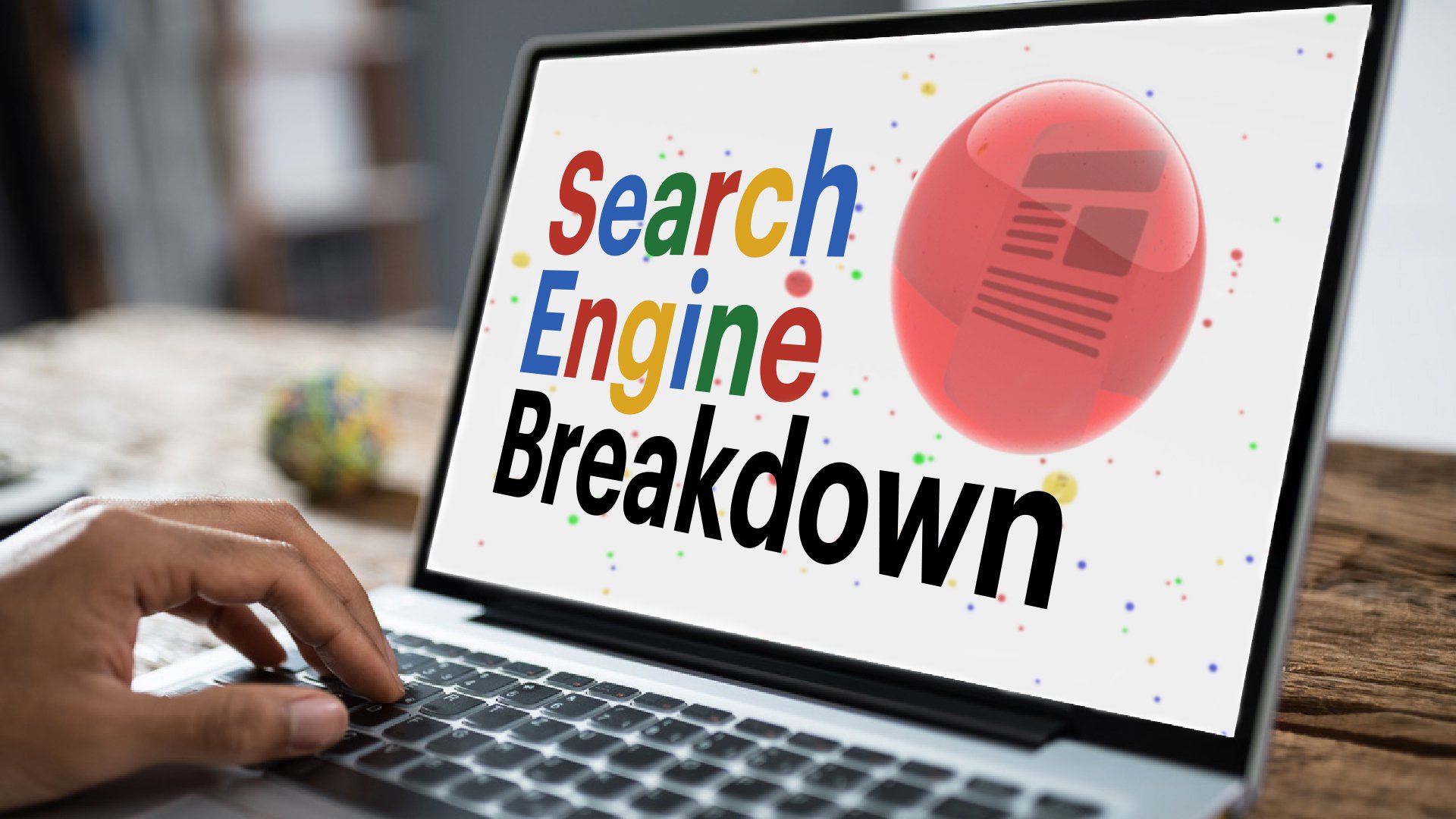California's Energy Gamble
Marlo Lewis, Jr. is a Senior Fellow at the Competitive Enterprise Institute, a Washington, D.C. think tank dedicated to the principles of free enterprise and limited government. An outspoken critic of what he calls "global warming alarmism," and in particular "Al Gore's science fiction," Lewis casts a doubtful eye on California's greenhouse-gas and energy policies. In this interview, find out why Lewis thinks California's gamble is doomed to fail.

A high-stakes bet
NOVA: Is California taking dangerous risks with its new energy policies?
Marlo Lewis: The policies that we're seeing in California make me nervous for California's future. You often hear the advocates of these policies say, "Oh, how can we gamble with the only climate we have?" I would say to them, "How can you gamble with the only economy we have?"
Eighty-five percent of the world's energy, 85 percent of the United States' energy, comes from fossil fuels. These are the very fuels that these California-type policies aim to suppress. And the best analysis from, for example, our own Energy Information Administration suggests that in 20 years, 85 percent of the world's energy will still come from fossil fuels, because we still haven't figured out how to meet world energy needs affordably through alternative fuels. Someday we will, but right now we don't know how.
So if you have laws that say, "We must get our energy from alternative sources," we are making a very big gamble. We're taking a huge risk with California's economic future.
"Energy prices will go up. There is no doubt about it. You can take that to the bank."
What is AB 32?
AB 32 is a California law that would establish what's called a cap-and-trade program to control greenhouse-gas emissions for the state of California. Its inspiration is the U.N. global-warming treaty known as the Kyoto Protocol.
The idea of a cap-and-trade program is that you have a ceiling, or cap, on total emissions. It sets a target for total emissions by a certain date. Then the government, in this case the government of California, distributes emission permits to various sources that emit greenhouse gases.
Different companies controlled by the cap can trade within it. So if some company reduces its emissions below the number of permits that it was allocated, it has surplus permits that it can sell to others who, for some reason, couldn't reduce their emissions to the extent of their permits.
Is this regulation, in effect, a tax?
Yes, it's what I would call a stealth energy tax. It has the same effect as an energy tax, which is to make energy scarcer and more costly to produce. And, unfortunately, the people hit the hardest are those who can least afford it, because lower-income households spend a larger proportion of their income on energy than higher-income households.
If it directly affects big companies that emit CO2, how does it hit consumers?
The cap-and-trade program initially affects energy producers—companies that generate electric power or refine petroleum into gasoline and other fuels. It also affects large manufacturers. They incur a cost. Those costs are either born by these companies, which then might have to employ fewer people or not raise wages, or they pass the costs on to consumers.
Are you certain that energy costs will go up?
Energy prices will go up. There is no doubt about it. You can take that to the bank. The only way a cap-and-trade system works is by penalizing energy use. That's the only way you can reduce emissions on a large scale.
Industries' response
How are industries reacting to California's new regulations?
Some industries are grousing. Some industries are licking their chops thinking that this will actually create a market opportunity for them. For example, if you produce electric power from geothermal vents in the Earth, well, then this law will expand your market share. Or if you are a manufacturer of wind turbines for electric generation, this will increase the demand for your product.
Industry is divided on climate policy generally, because there are always some businesses that think they're going to gain at the expense of others when you make energy more costly.
There are also electric utilities that like cap-and-trade, if they think they are going to get emission permits for free and then all they'll have to do is sell them. It's called windfall profits. But they don't like it if they think they will have to purchase permits through an auction that is competitively bid. Then they think it's terrible and the end of the world.
"There are real risks to human health and welfare and to technological progress in penalizing energy production."
What about heavy industry, things like steel production?
California does not have a lot of heavy industry. One reason why is that energy costs have been high in California for quite some time.
If California has anything resembling a state religion, it's conservation. California has been pursuing a demand-side approach to energy policy for decades. In other words, if you need more energy for homes and businesses, you don't produce more. Rather, you try to figure out how everybody can consume less.
So you might think that California would be less adversely affected by cap-and-trade, because there is so little energy-intensive industry. That's one possibility, and there is something to that. But on the other hand, since California has been pursuing energy efficiency as a top priority for decades, it may be that there isn't a whole lot more energy waste that you can ring out of this system. In which case, requiring Californians to use even less energy could be very painful.
Fueling economic growth
Some people argue that the conservation policies California has pursued since the 1970s haven't slowed the economy. In fact, the economy has done quite well. How do you respond?
One thing I would point out is that, even though California has kept per-capita energy consumption flat over the last, say, decade and a half, overall energy consumption has increased as have overall emissions as the population and economy have grown. What AB 32 attempts to do is really unprecedented. It's not keeping per-capita emissions flat. It's contracting total emissions, statewide. AB 32 tries to reduce emissions while the population and economy presumably grow.
Look at the old Soviet Union. They had tremendous reductions in emissions during the 1990s, in Bulgaria, Ukraine, Russia. How did they do it? Economic collapse. So, huge emission reductions while economies grow and populations grow? This is something that has never been done before in the history of the world.
Why are high energy costs so dangerous?
Energy is the lifeblood of a modern economy. Electricity, in particular, is becoming more important as we move further and further into the Information Age, the digital economy. It all runs on electrons.
One reason why the United States and Europe and Japan are so much more productive than countries in the developing world is that they're energy-rich. It's one reason why the modern world, as a whole, is so much more productive than medieval or ancient societies. So there are real risks to human health and welfare and to technological progress in penalizing energy production and making energy more costly.
Can we rely on free markets, rather than governments, to encourage energy efficiency?
The marketplace, on its own, produces energy efficiency in economically efficient ways. Where we get into trouble is when politicians pick arbitrary targets and mandate that by such and such a date we must become so many percent more energy efficient regardless of the costs to consumers.
This is like saying, "We can save oil if we just raise the price of gasoline to $10 a gallon. Isn't that a great idea?" In Europe, they actually do pay $7 a gallon for gasoline because of energy taxes. It's European energy policy that AB 32 attempts to establish in California.
"The whole point of an economy is to serve consumers. It's not supposed to serve special interest groups."
Some studies say that AB 32 and other laws will actually increase jobs significantly and bring billions of dollars into the state. What do you think of these predictions?
These studies that claim that AB 32 will actually make Californians richer are completely implausible. They assume that there are the equivalent of $100 bills lying around on the sidewalk and that businessmen just won't bend over and pick them up until some bureaucrat bends their ear or twists their elbow.
If it were possible to get richer by reducing energy consumption, businesses would do it already, because they're in the business of making profit. The people whose own money is at risk don't think this is a good use of their resources. That's why it has to be mandated. That's why it has to be imposed by law.
What are the less rosy predictions about AB 32's impact on the California economy?
According to one study, what AB 32 will do to the California economy is reduce GDP by $510 billion between today and the year 2040.
Picking favorites
What about the argument that AB 32 will grow the economy by spurring the renewable-energy industry?
The whole point of an economy is to serve consumers. It's not supposed to serve special interest groups who get favors from government. Obviously, if the government mandates in Soviet fashion that X percent of your power sector must come from renewable sources, you will get a growth in renewable-energy production and in the renewable-energy industry. But that's always at the expense of consumers and other industries.
But aren't private investors now placing their bets on renewables?
That's all stimulated by government interventions. It doesn't really reflect a market demand for renewable energy; it reflects a political intervention in the marketplace. The question to ask is whether these investments can be sustained without further and further interventions.
We're already seeing a bubble developing in the ethanol fuel sector. We're producing so much ethanol because of government policies that we now have a surplus in relation to the actual market demand. And corn prices are going through the roof, so profit margins are shrinking to the point where a lot of ethanol plants are closing. What is the solution that the ethanol lobby is now pushing? "We need an even bigger mandate to ramp up the demand even further."
That's what I think we're going to see [with other renewables]. We're going to see a bubble. And every time it's about to burst, there will be a cry for even stronger government intervention in order to keep the house of cards from falling.
Won't AB 32 spawn new jobs in the clean-tech sector and elsewhere?
Every government intervention in the economy does create some jobs, some very visible, identifiable jobs in the short run. What people forget is all of the jobs that aren't created because of the resources that were diverted. I predict that if we implement AB 32, over the next several years, as the increased energy costs kick in, you will begin to see job flight and capital flight from California.
Coal, renewables, and the future of energy
What's wrong with California's stance against coal?
California seeks not only to reshape its own energy sector, but to actually change the energy sector of the entire country. California is leading the charge nationwide against the construction of coal plants, and we could end up with a ban on new coal-fired power plants for the entire country. This is a goal of the environmental movement and certainly of California politicians like Barbara Boxer, Nancy Pelosi, and Arnold Schwarzenegger.
Under what's called business-as-usual scenario, coal is expected to provide about 65 percent of all new electric power between now and 2030. So if California wins in setting the terms of national energy policy, about 15 percent of the electric power that we are expecting to see in the year 2030 will not exist.
Now, that could have very severe repercussions on the entire U.S. economy. It would absolutely finish off the coal industry. But the repercussions are much greater. If we have a power deficit of 15 percent in the year 2030, we could have blackouts in many areas. The entire country will be in an energy crisis. And this will drive capital investment out of the United States like nothing you've ever seen.
"What we need are breakthroughs in energy technology that allow us to produce vast amounts of energy affordably without emissions."
Is it possible to fill this gap with renewables or nuclear power?
I don't see any way of filling this gap. The nuclear industry has been on hard times for so many years. There hasn't been a new nuclear power plant built in this country since the 1970s. We probably only have the manpower, the technology-trained personnel, to build three new nuclear plants a year. There's no way we can scale up in time.
Wind and solar power together provide less than one percent of the nation's entire electric power right now. All renewables, including geothermal and biomass, account for only about two percent. That's in spite of subsidies at the state and federal level. So there is really no readily available substitute for coal-fire generation if California determines energy policy for the country.
What are the drawbacks to wind and solar power?
Wind and solar power are practically useless as sources of base load power—the power that supplies our homes and businesses 24 hours a day, 365 days a year—because they are intermittent energy sources. Only when the wind is blowing, and only at the right speed and the right direction, do we get anywhere near useful amounts of electricity from wind turbines. Solar power has the same drawback. It's great if you're in a desert during the daytime. But even in a desert with no clouds, the sun isn't shining at night.
Another disadvantage is that the best sites for wind and solar power are often very remote from where people live. So you have to build very long transmission lines. Some people say, "These energy sources are free. The wind and the sun are free." Yes, but the infrastructure needed to bring the electricity from where it's generated to where it's needed is exceedingly costly.
You're obviously skeptical of the rush to transition from fossil fuels, but do you think we need alternative energy sources?
What we need are breakthroughs in energy technology that allow us to produce vast amounts of energy affordably without emissions. California's policy is simply to tell people not to use the energy sources that today are the most reliable and the most affordable. And that, I think, is what is fundamentally wrong not only with the California policy, but also with the Kyoto Protocol, the whole suite of regulatory climate strategies that preoccupy our policymakers today.
The technology horse has to come before the policy cart. I'm afraid that California is trying to put the policy cart in front of the technology horse—"Let's just mandate this and hope that the technology develops to make it feasible." I think that's taking a huge gamble with people's lives.


